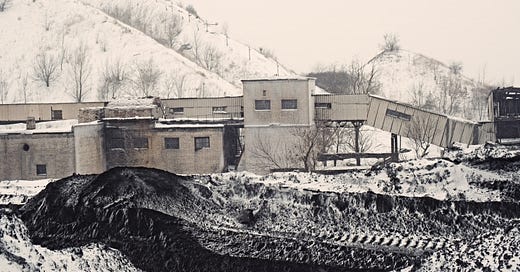Diary, continued: Eugene Ostashevsky on Yevgenia Belorusets
Photo: From “Victories of the Defeated,” a cycle of more than 150 photographs and texts created by Yevgenia Belorusets during the 2014 war in Donbas, devoted to post-industrial Ukraine, to work in coal mines on the edge of the war zone, and to contemporary forms of labor amidst military conflict
Read Yevgenia Belorusets’ “The Stars,” here
July, 2021
The fighting in the East Ukrainian region of Donbas casts a shadow of unreality over Yevgenia Belorusets’ stories. For years, Russian propaganda efforts and planted rumors have rewritten the lived reality there in deliberately absurd and atavistic terms, not just to appeal to the emotional associations of their audience’s Soviet childhoods, but to sabotage the very possibility of an independent truth. Belorusets narrates the lives of her protagonists with the perspectivism, fragmentariness, and, above all, uncertainty that characterize the war as perceived by participants willing and unwilling—especially this war, where the Russian instigation of separatist violence has been disguised and denied up to now. Some of Belorusets’ stories take place in Kyiv, others, near the war zone, while yet others are set in the regions occupied by the separatists, or else regions that have recently changed hands.
Keep reading with a 7-day free trial
Subscribe to Book Post to keep reading this post and get 7 days of free access to the full post archives.




